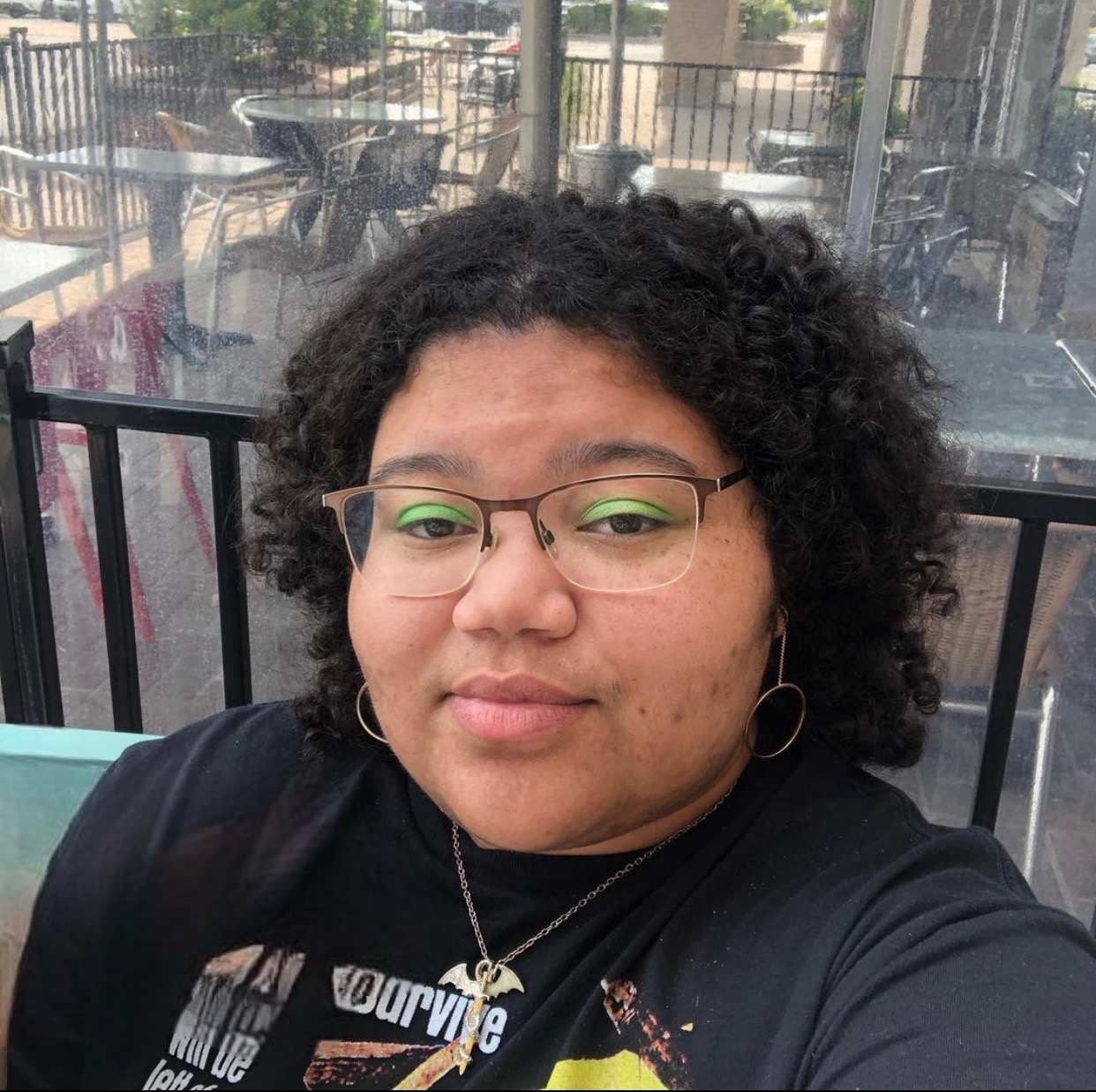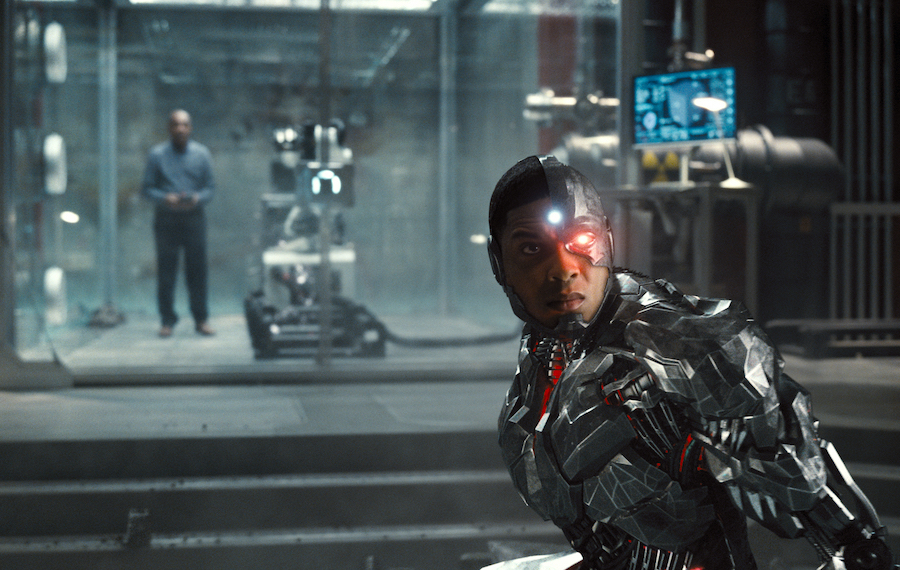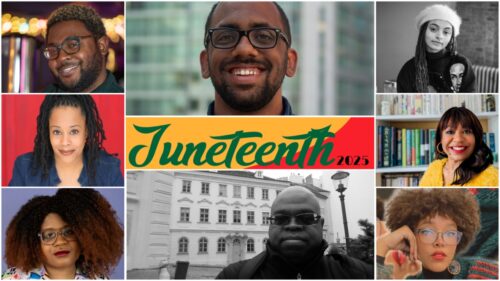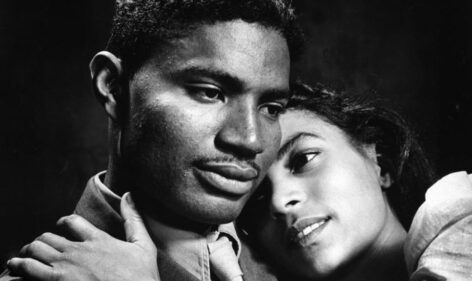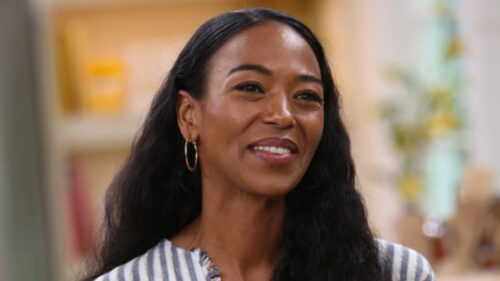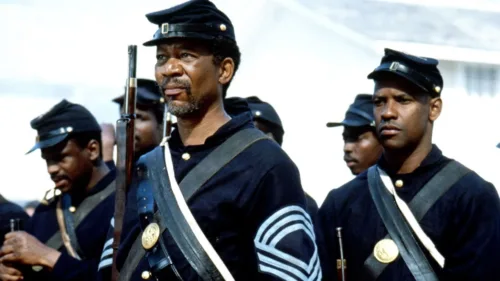I see my father’s face every night before I go to sleep. Not because he’s in the room with me, but because of the photo, one of ten I have of him, rests on a blue, weathered 19th-century chest on a dresser at the foot of my bed. In it, he is holding me, swaddled in winter clothes. Sometimes I stare at it so that I won’t forget what his face looks like.
It’s rare to see Black love between a child and their parents on screen. Zack Snyder’s DCEU films have always focused on the bond between parent and child. In “Man of Steel,” Clark Kent’s vision of himself was influenced by how his father saw him. In “Batman v Superman: Dawn of Justice,” the infamous “Martha” scene was the subject of many internet debates but also the heart of the film. With “Zack Snyder’s Justice League,” it is apparent that this motif has not waned in Snyder’s absence from the superhero genre. With Snyder having to leave production during the initial filming of “Justice League” due to a family tragedy, the parent-child relationship wasn’t present throughout any of the film. But, with the #SnyderCut coming to fruition, the director was able to restore this theme to create the most tender relationship in his filmography between Victor Stone (also known as Cyborg) and his father, Silas Stone.
I relate to their family dynamic because, like Victor, my relationship with my father was complicated. I grew up with my mother and grandmother. I didn’t meet my father until I was seven years old. Victor, although he grew up with his father, never sees him. Their relationship is strained, and Victor feels abandoned by him. A family tragedy further complicates their bond, and they barely speak. When I was nine, my mother and I moved away from the city my father lived in. He visited me only once after that. We went to the park. It was the last time I would ever see him in person. I frequent that park now in my twenties. Sometimes I see us there, frozen in time among the leaves.
Toward the middle of “Zack Snyder's Justice League,” Victor and Silas find themselves on speaking terms, realizing they need to work together to defeat the film’s villain, Steppenwolf. It’s still rocky between them, but they find common ground. Just when you think they might rebuild their relationship, Silas is killed in a painful scene where Victor attempts to hold on to his body as it disintegrates. The first time I saw the film, I had to pause it to go look at my father’s immobilized face on the dresser in my room. I then tore down the stairs to go outside and get some air.

After not speaking for a couple years, we talked for about a year when I was a teenager. We’d text. I told him about school, and he told me about his mother. It was going well, but I didn’t have the courage to ask him to meet in person. Then, my father went missing when I was 15. I called him on Easter morning, and there was no answer. I called again and again, until I turned 19. By then, the number had been disconnected. I called again when I was 20 and a woman picked up and said she had no idea who my father was.
The sheer horror on Victor’s face as he watches his father die is something I never got to experience. I have felt confusion and grief, as Victor did, but there’s a terrible, ever-present weight when someone you love goes missing versus dying. It’s the kind of grief that has no ending. Every decision I make, every career milestone I achieve, I think, “Would he be proud of me?” Near the end of the film, Barry Allen, whose father is in prison, is about to sacrifice himself. He closes his eyes and whispers, “Whatever happens, I want you to know, your kid was one of them, dad. One of the best of the best.” Talking to the dead is a meditation I practice often in deep depressions, making confessions to my father. On birthdays, I whisper to the wind how much I loved him. How much I still love him.
In a dream sequence, Victor says, “You don’t have to be alone anymore. We’ll be together again.” When the weight of my father’s disappearance overwhelms me, I’ve often thought, “I ceased to exist, maybe I could see my father again.” Victor continues, saying, “We can put it back, Vic. Make you whole again.” That’s how my father’s disappearance makes me feel, like a part of me died back in 2013. With that last text message—which I can no longer remember—I had no idea what was to come. When I texted him and got no response, I thought, “He must be busy.” But as the years passed, I had to accept a potentially more dire outcome. My father lived a strange life of uncertainty. He was always thin and you could hear the fatigue in his voice. Now, at 22, I have reconciled the fact that he may not have just disappeared.
It’s a terrifying thought, but it’s one I must accept if I’m to heal. Like Silas tells Victor in a message to his son from beyond the grave: “Heal. Love. Win. The time is now.” My father named me after a thing of beauty and strength, so I know he wouldn’t want me to grieve as hard as I have. But because I was unable to mourn properly, ghosts of him exist on buses, in customers I serve. There’s the persistent thought of “Maybe he is still out there,” though I feel in my gut that he’s gone. It’s a hard pill to swallow, watching my friends and their fathers and seeing the love they share. As Victor faces the ultimate test of will in the climax of “Zack Snyder’s Justice League,” a version of himself taunts him into submission. Finally, Victor fights back declaring, “I’m not broken. And I’m not alone.” This realization within him sparked something within me. Yes, we are both troubled and filled with grief, but we are not broken. Many people will have to face this grieving process at some point. Victor and I just had to do it earlier in our lives.

Victor’s grief stems from a place of dedication, festering over the years like an open wound. He seeks his father’s affection more than anything, and in those final moments, the look on Silas’ face is like a declaration: “I love you. You’ll be okay.” When the credits rolled and I read “For Autumn” in bold letters on the screen, I couldn’t help but weep. Not just for Zack Snyder and his family but for myself, as well. My father is etched in every part of my work, on the page and on screen. At times it feels like I’m doing this just to keep him alive.
The first film I watched with my father the night we met, was a superhero film. We crammed onto the couch together, my mother watching us from the other side of the room. I remember being struck by how much he loved the movie. I can’t help but think he would love “Zack Snyder’s Justice League.” It is as if my relationship with him exists only through movies now. From his love of samurai films to glimpses of him I see in the character Silas Stone, my father lives on in spirit through films. I see him in every Black man that smiles at me through my television screen. I hear his laughter mixed in with theater audiences. Like Victor, my father is a ghost, ever present in my dreams and in my mind. His memory fades with every passing year, but with films like “Zack Snyder’s Justice League,” I don’t think I can ever truly forget him. And although I may have needed a lot more of him in the past, this existence will have to do for now.
